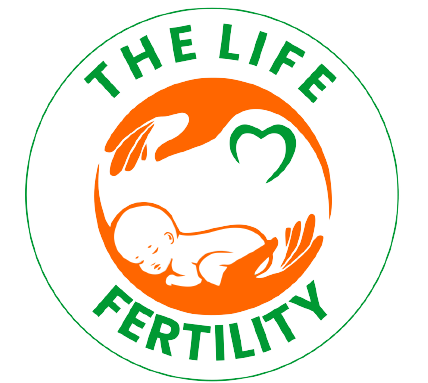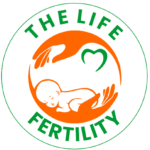Introduction: Understanding Infertility Depression: The Emotional Toll
Infertility presents a profound challenge, often extending far beyond the physical aspects of trying to conceive. For many, the persistent struggle ignites a deeper emotional burden, one that can evolve into infertility depression. This is not simply a fleeting sadness after a negative pregnancy test; rather, it’s a sustained state of low mood and diminished interest that significantly impairs daily life. Understanding this distinction is the first crucial step toward seeking support and recovery.
The yearning for a child is deeply ingrained in human experience, and the inability to conceive can trigger intense feelings of grief and loss. This grief is multifaceted, encompassing the loss of a hoped-for future, the loss of a biological connection, and sometimes, a sense of loss of identity.
The infertility journey is often marked by cycles of hope and disappointment, each failed attempt deepening the emotional wounds. For individuals and couples navigating fertility challenges in Nigeria, these feelings can be amplified by cultural expectations and societal pressures surrounding childbearing. The emotional impact of infertility depression can permeate all aspects of life, affecting relationships, work, and overall well-being.
Beyond sadness, individuals experiencing infertility depression may grapple with persistent anxiety about not conceiving, a gnawing stress related to trying to conceive, and a significant dip in self-confidence. The constant medical interventions, financial strain, and the feeling of being “stuck” can erode emotional reserves.
It’s important to acknowledge that prolonged treatment or the repeated disappointment of failed IVF cycles can significantly exacerbate these feelings, pushing individuals further into the depths of infertility depression. Recognizing the gravity of this emotional toll is paramount, paving the way for understanding the symptoms and seeking effective pathways to recovery.
Recognizing the Symptoms of Infertility Depression
Identifying the signs of infertility depression is a critical step towards seeking timely support. The emotional landscape of someone experiencing this condition often includes more than just occasional sadness. A persistent feeling of being down, a lack of interest or pleasure in activities that were once enjoyable, and overwhelming feelings of worthlessness or inappropriate guilt are common emotional symptoms of infertility depression. These feelings tend to linger, coloring daily experiences with negativity.
Behavioral changes can also signal the presence of infertility depression. Individuals might withdraw from their usual supportive networks, finding it difficult to engage with friends and family. Noticeable shifts in appetite, either a significant increase or decrease, and disruptions in sleep patterns, such as insomnia or excessive sleep, can also be indicative. Furthermore, persistent fatigue and a lack of energy, even with adequate rest, are frequently reported.
Cognitively, infertility depression can manifest as difficulty concentrating on tasks, a tendency towards pervasive negative thinking about the future and the possibility of parenthood, and a constant preoccupation with fertility struggles. These thoughts can become intrusive and difficult to dismiss. It’s essential to understand that these symptoms can vary in intensity and presentation from person to person.
Recognizing these subtle yet significant shifts in emotions, behavior, and thought patterns is crucial for early intervention and seeking appropriate help for infertility depression. Moreover, within the Nigerian cultural context, where the pressure to conceive can be intense, these symptoms might be compounded by feelings of shame or inadequacy, making it even more important to acknowledge and address them openly.
Pathways to Recovery from Infertility Depression: Evidence-Based Strategies
Fortunately, effective pathways to recovery from infertility depression exist. Evidence-based strategies, encompassing therapeutic interventions, medication when appropriate, and mind-body techniques, can offer significant relief and support the journey toward emotional well-being.
Therapy and Counseling for Infertility Depression: Engaging in therapy or counseling provides a dedicated space to explore the complex emotions associated with infertility and to address the underlying issues contributing to infertility depression. Individual therapy can help individuals process their grief, identify negative thought patterns, and develop healthier coping mechanisms for the ongoing challenges of the infertility journey.
For couples, couples therapy offers a platform to navigate the emotional strain together, improve communication, and strengthen their bond during this difficult time. Cognitive Behavioral Therapy (CBT) is a particularly effective approach for infertility depression, focusing on identifying and modifying negative thought patterns and behaviors that contribute to low mood.
Mindfulness-based therapies, which emphasize present moment awareness and acceptance, can also be valuable tools for managing the emotional distress associated with infertility depression. Seeking guidance from specialized fertility counselors who possess a deep understanding of the unique psychological challenges of infertility and infertility depression can be particularly beneficial.
Medication for Infertility Depression: In some instances, antidepressant medication may be considered as part of a comprehensive treatment plan for infertility depression. These medications, such as selective serotonin reuptake inhibitors (SSRIs), can help regulate brain chemistry and alleviate depressive symptoms.
However, it is absolutely crucial to have a thorough discussion with a qualified medical doctor regarding the potential benefits and risks of medication, especially for individuals actively trying to conceive or who may become pregnant. The decision to use medication should be made in collaboration with a healthcare professional who can carefully assess individual needs and provide informed guidance on the most appropriate course of treatment for infertility depression.
Mindfulness and Stress Reduction Techniques for Infertility Depression: Incorporating mindfulness and stress reduction techniques into daily life can significantly aid in managing the emotional turmoil of infertility depression. Practices such as meditation, even just for a few minutes each day, can help cultivate a greater sense of calm and present moment awareness, reducing the grip of negative thoughts.
Deep breathing exercises are a simple yet powerful tool for calming the nervous system and alleviating anxiety related to the ongoing struggles of infertility and depression. Progressive muscle relaxation, a technique involving tensing and then releasing different muscle groups in the body, can also help to reduce physical tension that often accompanies emotional distress.
Regularly engaging in these practices can empower individuals to better navigate the emotional ups and downs of infertility and mitigate the impact of infertility depression.
Building Resilience: Cultivating Inner Strength to Cope with Infertility Depression
Building resilience is a crucial aspect of navigating the emotional challenges of infertility and fostering recovery from infertility depression. Resilience, in this context, refers to the ability to adapt well in the face of adversity and to bounce back from difficult experiences. Cultivating inner strength involves adopting proactive strategies that bolster emotional well-being and enhance coping mechanisms.
Self-Care Strategies for Managing Infertility Depression: Prioritizing self-care is fundamental in managing the impact of infertility depression. This involves consciously attending to one’s physical, emotional, and mental needs. Ensuring a balanced diet provides the necessary nutrients for overall well-being, while regular exercise has been proven to have a positive impact on mood and reduce symptoms of depression.
Sufficient sleep is also essential for emotional regulation and cognitive function. Beyond these basics, engaging in activities that bring joy and relaxation, such as pursuing hobbies, spending time in nature, or listening to music, can provide much-needed respite from the emotional strain of infertility depression.
Furthermore, establishing healthy boundaries with family and friends regarding sensitive topics related to fertility is a vital act of self-preservation, protecting against potential triggers and further emotional distress associated with infertility depression.
Developing a Positive Mindset While Facing Infertility Depression: While the challenges of infertility are undeniable, actively working to develop a more positive mindset can significantly aid in coping with infertility depression. This involves consciously challenging and reframing negative thought patterns that often accompany the struggle to conceive.
Focusing on aspects of life that remain within one’s control, rather than dwelling solely on the uncontrollable outcome of fertility, can foster a greater sense of agency. Practicing gratitude for existing blessings and celebrating small victories along the way, such as completing a difficult treatment cycle or engaging in a helpful self-care activity, can shift focus and build momentum.
Cultivating self-compassion, treating oneself with the same kindness and understanding offered to a friend in distress, is particularly important during the inevitable setbacks and emotional fluctuations experienced with infertility depression.
Building a Strong Support System to Combat Infertility Depression: The importance of a strong support system cannot be overstated when navigating infertility depression. Actively connecting with understanding friends, supportive family members, or specialized support groups for individuals experiencing similar challenges can provide invaluable emotional validation and a sense of not being alone.
Sharing experiences with others in Nigeria who are also grappling with fertility issues and the associated infertility depression can foster a sense of community and shared understanding. Open and honest communication with one’s partner about the emotional toll of infertility and the impact of infertility depression on the relationship is also crucial for mutual support and navigating the journey together.
The Power of Support: Finding Connection and Community for Infertility Depression
Connecting with others who understand the unique challenges of infertility and infertility depression can be profoundly healing. The isolation that often accompanies infertility can exacerbate feelings of sadness and hopelessness, making the power of support and community a vital component of recovery.
Joining infertility support groups, whether online or potentially in-person within Nigeria, offers a safe and understanding space to share experiences, feelings, and coping strategies with others facing similar struggles. Within these groups, individuals often find a sense of validation and normalization of their emotions, realizing they are not alone in their experience of infertility depression. The shared understanding and empathy within these communities can be incredibly comforting and empowering.
Online forums and communities dedicated to infertility support can also serve as valuable resources, providing 24/7 access to connection and information. These platforms allow individuals to share their stories, ask questions, and receive encouragement from others who truly understand the emotional landscape of infertility and infertility depression.
Finding and accessing these support systems is a crucial step. Seeking recommendations from healthcare providers or searching online for infertility support groups in Nigeria can be a starting point. Mental health professionals specializing in reproductive health often have connections to local support networks.
Additionally, national organizations or resources focused on fertility may also offer or be able to direct individuals to relevant support services for infertility depression. The act of reaching out and connecting with others can be a powerful antidote to the isolation often felt when dealing with the emotional weight of infertility and infertility depression.
Practical Coping Mechanisms for Daily Life with Infertility Depression
Navigating daily life while experiencing infertility depression can feel overwhelming. However, implementing practical coping mechanisms can provide a sense of control and help manage difficult emotions as they arise.
Emotional Expression as a Tool for Managing Infertility Depression: Finding healthy outlets for emotional expression is vital. Journaling can be a powerful way to process complex feelings, track emotional patterns, and gain insights into triggers related to infertility depression.
Talking openly and honestly with a trusted friend, family member, or therapist about the impact of infertility depression can also provide emotional release and validation. Simply articulating feelings can lessen their intensity and prevent them from becoming bottled up.
Managing Triggers to Protect Against Infertility Depression: Identifying and understanding personal triggers – situations, conversations, or even social media content that exacerbate feelings of sadness, anxiety, or hopelessness related to infertility – is an important step.
Once identified, establishing clear boundaries around these triggers, when possible, can help protect against further emotional distress and the deepening of infertility depression. This might involve limiting exposure to certain topics or social situations, or learning to politely decline conversations that are likely to be upsetting.
Practicing Self-Compassion During the Difficulties of Infertility Depression: It’s crucial to cultivate self-compassion, treating oneself with the same kindness and understanding that would be offered to a friend facing similar hardship.
Recognizing that experiencing difficult emotions during infertility is normal and valid, and refraining from self-criticism, can make a significant difference in managing infertility depression. Practicing self-soothing activities and acknowledging one’s own pain with gentleness are key aspects of self-compassion.
Focusing on Other Meaningful Aspects of Life Beyond Infertility Depression: While infertility can feel all-consuming, consciously directing attention and energy towards other meaningful aspects of life can provide a sense of balance and purpose. Actively pursuing personal hobbies, nurturing existing social connections that are not solely focused on fertility, and setting achievable non-fertility-related goals can help to maintain a sense of identity and well-being, even while coping with infertility depression.
Seeking Accurate Information and Setting Realistic Expectations Regarding Infertility, Depression, and Treatment: Educating oneself about the emotional aspects of infertility and the nature of infertility depression can be empowering. Understanding that these feelings are valid and that help is available can reduce feelings of shame or isolation.
Similarly, gaining a realistic understanding of fertility treatment options and potential outcomes, while acknowledging the inherent uncertainties, can help manage expectations and reduce some of the anxiety that can contribute to infertility depression.
Conclusion
The journey through infertility can be emotionally arduous, and the emergence of infertility depression adds another layer of significant challenge. However, it is crucial to remember that hope and healing are indeed attainable. By understanding the nature of infertility depression, recognizing its symptoms, and actively pursuing evidence-based pathways to recovery and resilience, individuals can navigate this difficult time with greater strength and self-compassion.
Seeking support from professionals and connecting with others who understand are vital steps in this process. You are not alone in this experience, and with the right strategies and support, finding emotional well-being amidst the challenges of infertility and finding the right infertility solution is possible, paving the way for a future filled with hope and healing.
What exactly is infertility depression?
Infertility depression is a form of clinical depression that can develop in individuals and couples struggling with the inability to conceive. It extends beyond the typical sadness and disappointment associated with fertility challenges, manifesting as a persistent low mood, loss of interest in enjoyable activities, and other significant symptoms that negatively impact daily functioning and overall well-being.
How can I best support someone I know who is struggling with infertility depression?
The most helpful ways to support someone experiencing depression caused by infertility include offering empathetic and non-judgmental listening, encouraging them to seek professional help if they haven’t already, respecting their boundaries regarding conversations about fertility, and offering practical support in their daily life. It’s important to avoid minimizing their feelings or offering unsolicited advice and instead focus on providing consistent and understanding support.
Where can individuals in Nigeria find support for infertility depression?
Support for depression caused by infertility in Nigeria can be sought from mental health professionals such as psychologists, counselors, and therapists who have experience in reproductive health or the emotional challenges of infertility. Online and in-person infertility support groups within Nigeria can also provide valuable peer support and connection. Additionally, reaching out to national health organizations or fertility clinics may provide referrals to relevant mental health resources.
Q: Is using medication a potential treatment option for infertility depression?
In some situations, medication, such as antidepressant medications, can be a helpful component in the treatment of depression. However, it is essential to have a comprehensive discussion with a qualified medical doctor to weigh the potential benefits and risks, particularly for individuals who are currently trying to conceive or may become pregnant. The decision to use medication should be made in close consultation with a healthcare professional.
What are some effective strategies for coping with infertility depression?
Effective coping strategies for depression caused by infertility often include seeking professional support through therapy or counseling, practicing mindfulness and various stress reduction techniques to manage anxiety, prioritizing self-care activities that promote emotional and physical well-being, building a strong and supportive network of understanding individuals, and finding healthy ways to express and process the complex emotions that arise.
Can the challenges of infertility directly lead to depression?
Yes, the significant emotional stress, the profound sense of grief and loss associated with failed infertility treatments, the inability to have a child, and the ongoing uncertainty inherent in the infertility journey can indeed increase the risk of developing infertility depression. The hormonal fluctuations that can occur during fertility treatments may also contribute to mood changes and an increased vulnerability to depression.
How is the feeling of sadness after a failed fertility treatment different from infertility depression?
Experiencing sadness and disappointment following a negative outcome in fertility treatment is a normal and understandable emotional response. However, infertility depression is characterized by a more profound and persistent state of sadness, often accompanied by other symptoms like changes in appetite or sleep, fatigue, feelings of worthlessness, and a loss of interest in life. These symptoms typically last for more than two weeks and significantly interfere with daily activities.




